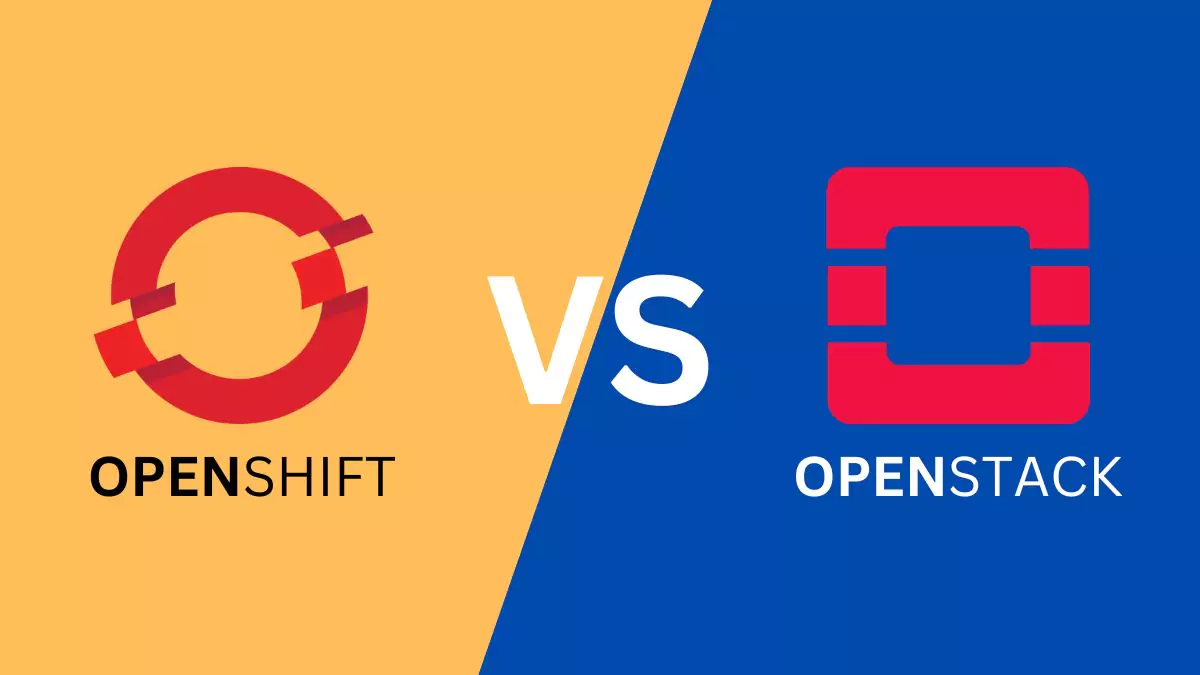Exploring OpenShift vs OpenStack

Strong 8k brings an ultra-HD IPTV experience to your living room and your pocket.
The new revolution which is brought by cloud computing has changed the way we store, manage, and access data completely. Moreover, a lot of businesses are looking for a platform that is inexpensive as well as which also gives productivity in hosting cloud applications.
Both platforms, OpenShift vs OpenStack, provide scalable and adaptive cloud computing solutions. However, both are suited to their specific user needs. They also differ greatly in architecture, deployment, scalability, and application support in the areas of cloud computing and container orchestration. OpenStack and OpenShift are two open-source technologies used vastly in different functionalities. OpenStack is used in managing and provisioning infrastructure resources, whereas OpenShift primarily focuses on container orchestration and application deployment.
This article will take you through a detailed review of both OpenStack and OpenShift and will also guide you in picking the best platform that fits your needs.
What is OpenStack?
OpenStack is a cloud computing platform that is free and completely open-source. It manages both public and private clouds. It is known as Infrastructure as a Service (IaaS) because it provides infrastructure for installing applications and operating systems.
OpenStack can manage virtual machines that run both Linux and Windows operating systems, but the control panel and many OpenStack services primarily run on Linux. OpenStack is inexpensive and it works well on commodity hardware.
These modules use APIs and various other services to manage resources like computing, storage as well as networking. It also includes a web-based dashboard for easy user interaction, as well as a stateless GUI architecture for building front-ends. The command line is the preferred mode of interface and management since it provides maximum flexibility and robustness.
Advantages of OpenStack:
Cost-Effective: OpenStack is a free and open-source platform hence, the cost of creating and operating cloud infrastructure is low. Even if you utilize a managed OpenStack system, the savings are noteworthy as compared to public clouds.
Flexibility: OpenStack is adaptable. It can be implemented in a wide range of settings. This may include public, private, and hybrid clouds.
Scalability: OpenStack is extremely scalable because it enables you to simply add or remove as required. When you need extra resources, just add more nodes to your OpenStack Deployment. This will allow you to scale individual services separately.
Customization: OpenStack offers a number of APIs and tools that allow businesses to modify the platform according to their needs. Therefore, this enables businesses to build a cloud architecture that matches their business needs.
Large and active community: The community of OpenStack developers and users is large and vibrant. It provides a range of platform extensions and add-ons in addition to help and documentation.
Security: OpenStack includes several security features such as identity and access management, encryption, and network isolation. This helps firms secure their cloud infrastructure and data.
What is OpenShift?
Red Hat’s OpenShift platform is a powerful software that makes it easier to install and manage container-based applications. It was constructed using Kubernetes, which is an open-source container orchestration technology.
OpenShift also allows you to manage a diverse set of apps and technologies. You can simply upgrade existing applications and speed up the delivery of new cloud-based applications. It is a versatile platform that can be used with a variety of infrastructure such as public, private, or on-site data centers.
This flexibility enables enterprises to select the infrastructure that best matches their objectives while still providing the performance, security, and compliance required.
It also includes CLI and web interface dashboards to allow developers to focus on codes, while the operations team manages and monitors the cluster. Docker containers can be deployed in OpenShift without the need to customize each Kubernetes cluster component. It’s a completely managed platform-as-a-service for container deployment.
Advantages of OpenShift:
Ease of deployment: OpenShift indeed facilitates application deployment, but it is known to have a steep learning curve, especially for those unfamiliar with Kubernetes. The ease of deployment is relative and depends on the user’s familiarity with container orchestration tools. Therefore, this reduces the need for complex infrastructure administration. Additionally, it also allows for rapid application deployment and scaling.
Scalability: OpenShift is scalable and it also allows companies to scale applications up or down when needed. In particular, this ensures that the applications can handle the growing traffic and demand.
Flexibility: OpenShift can run on many different platforms.
Programming languages and frameworks: OpenShift’s platform is flexible and thus it enables its developers to use the tools they are most comfortable with.
Security: OpenShift offers the following features security skills, role-based access control, network isolation, and automated security updates. These features guarantee that the apps are secure.
Community support: OpenShift is an open-source platform that is supported by a big and active community of developers. Organizations can learn the expertise of others in the community while also contributing to the platform’s development.
Note: IndiBlogHub features both user-submitted and editorial content. We do not verify third-party contributions. Read our Disclaimer and Privacy Policyfor details.


